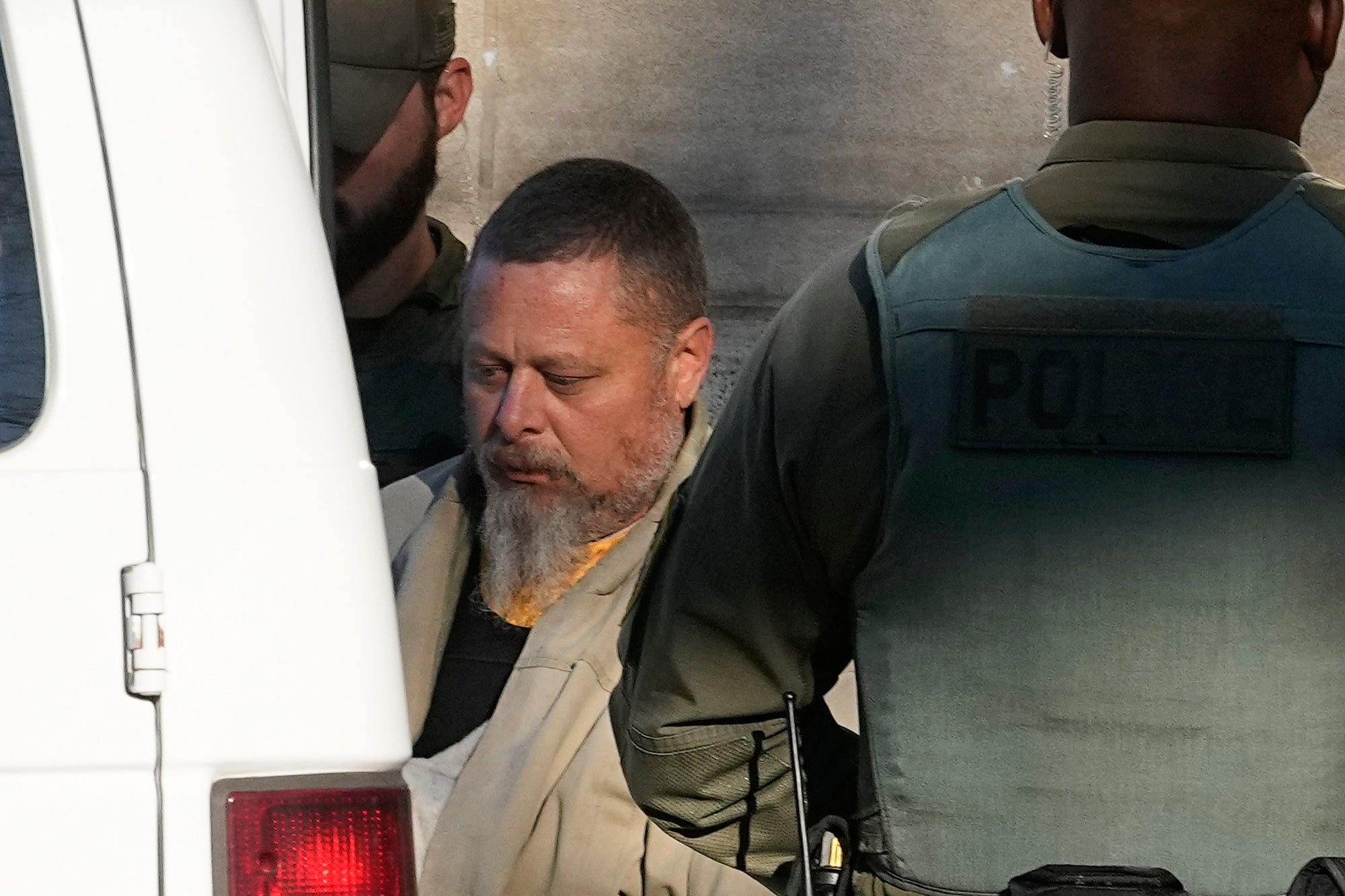Delphi killer Richard Allen gets 130 years for brutal slaying of two girls in Indiana
Richard Allen received the maximum sentence after a jury found him guilty of murdering Abigail Williams and Liberty German
Richard Allen, the man convicted of killing two teen girls in Delphi, Indiana seven years ago, was sentenced to 130 years in prison.
Special Judge Fran Gull handed Allen, 52, the maximum 65-year sentence for each murder on Friday morning, calling the case the “most heinous” she’s encountered in her career.
The sentencing hearing lasted just over an hour, according to reporters in the courtroom.
Last month, a jury found Allen guilty of four counts of murder and kidnapping in the deaths of Abigail “Abby” Williams, 13, and Liberty “Libby” German, 14. However, Allen’s attorneys previously filed a motion to throw out two of the charges, arguing he can’t “constitutionally be convicted twice for the same crime.” Gull then vacated the two federal murder charges at the hearing, local outlet WISH-TV reported.
The jury deliberated over four days before reaching their decision. Allen did not react while his wife looked on and sobbed.

The girls’ loved ones took the stand ahead of Gull’s decision. Allen’s sentence “will never be enough,” German’s grandmother Becky Patty told the court.
“What happens when Libby’s nieces and nephews, their grandchildren and great-grandchildren, want to learn about Libby and that’s what they were met with?” Patty said.
Williams and German disappeared on February 13, 2017, after going for a walk on Monon High Bridge Trail near Delphi. Their bodies were discovered near the trail the next day. Their throats had been slashed and they were covered with sticks and arranged into “pagan” symbols, court documents revealed.
Indianapolis police arrested Allen — a husband, father and CVS employee — in October 2022. He admitted to being on the trail that day but denied any involvement with the murder.
Allen pleaded not guilty. His defense argued against the prosecution’s timeline throughout the trial, highlighting the state’s “broken” murder timeline, the “bungled” ballistics, “false” confessions and digital forensics. Before the trial began, Allen’s team tried to argue the girls were killed in a ritual sacrifice by members of the Odinists, a white nationalist group that follows a pagan Norse religion, on account of the symbols identified by investigators.

The judge ruled against them, telling the defense they “failed to produce admissible evidence” of their argument.
Carroll County Prosecutor Nicholas McLeland presented confessions from Allen as evidence, telling the jurors that Allen had repeatedly admitted to killing the girls in phone calls from his jail. He played the confessions for the jury, including one in which Allen told his wife, “I did it, I killed Abby and Libby”.
Allen’s attorneys in turn argued his confessions were unreliable because he suffered a severe mental health crisis while under the stress of being held in isolation. A psychiatrist testified to support the argument, arguing that months in solitary confinement could cause a person to become delirious.
McLeland also presented the jury with a grainy video of a man on a nearby bridge that German recorded just before her death. Footage shows the man in jeans and a hat saying the words, “down the hill.”
That footage was central in the investigation and captivated true crime fans as they tried to help solve the case.
He argued Allen was “Bridge Guy” while citing an investigator who listened to hundreds of Allen’s phone calls and identified the voice in the video as his.
Allen’s attorneys instead argued no one identified Allen as “Bridge Guy” and that there was no DNA or digital evidence linking him to the crime scene or to the two girls.

